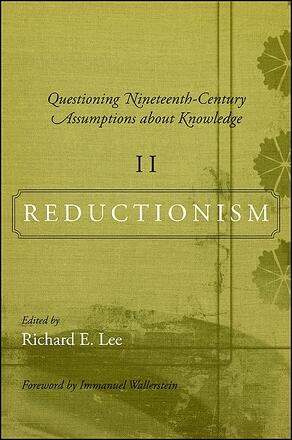
Questioning Nineteenth-Century Assumptions about Knowledge, II
Reductionism
Alternative formats available from:
A provocative survey of interdisciplinary challenges to the concept of reductionism.
Description
During the last few decades, the fundamental premises of the modern view of knowledge have been increasingly called into question. Questioning Nineteenth-Century Assumptions about Knowledge II: Reductionism provides an in-depth look at the debates surrounding the status of "reductionism" in the sciences, social sciences, and the humanities in detailed and wide-ranging discussions among experts from across the disciplines. Whether or not there is or should be a basic epistemological stance that is different in the sciences and humanities, and whether or not such a stance as exemplified by the approach to reductionism is changing, has enormous consequences for all aspects of knowledge production. Featured are an overview and subsequent discussion of this pervasive concept in the social sciences that parses reductionism into the categories of strong social constructionism and anti-essentialism, social ontology and the apathetic actor, dualisms, and individualism. Also of interest in chapters and follow up discussions are the relations between essentialism and emergentism in complex systems theory.
Reviews
"Modern knowledge, according to the contributors to this multivolume exercise (based on three symposia), is based on three questionable premises and principles: determinism, reductionism, and dualism. Each volume interrogates these three principles and seeks to find alternative and more satisfying bases for knowledge. The volumes include formal papers as well as commentaries and edited transcripts of the discussions at each symposium. The range is truly extraordinary, with papers covering everything from economics to opera, cognitive neuroscience, literary studies, mathematical modeling, and systems theory … [the volumes] open a host of questions for scholars to ponder and suggest many enlightening lines of inquiry … Highly recommended. " — CHOICE